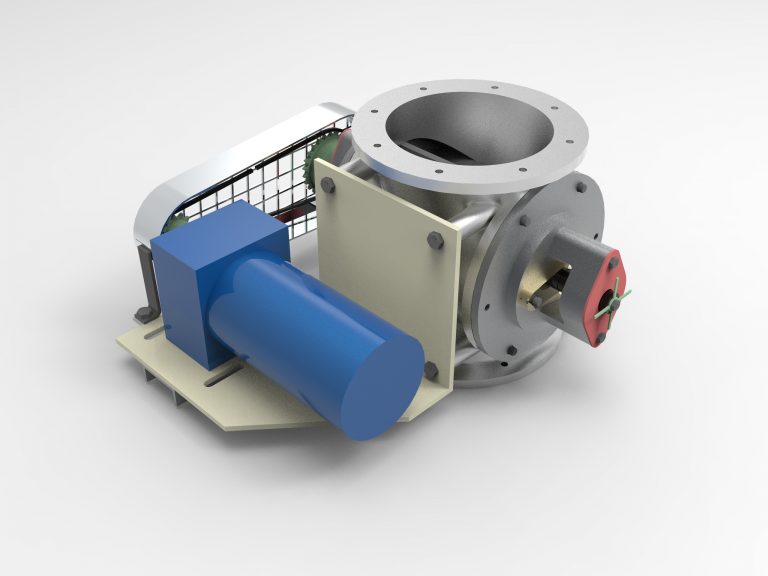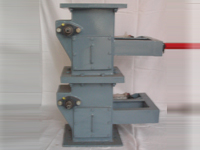ROTARY AIRLOCK VALVE

The basic use of the rotary airlock feeder is as an airlock transition point, sealing pressurized systems against loss of air or gas while maintaining a flow of material between components with different pressure and suitable for air lock applications ranging from gravity discharge of filters, rotary valves, cyclone dust collectors, and rotary airlock storage devices to precision feeders for dilute phase and continuous dense phase pneumatic convey systems.
Drive systems available: Chain driven & Direct Driven
S.N. | Rav Size | STD design | Quick release |
1 | RAV-150 | YES | YES |
2 | RAV-200 | YES | YES |
3 | RAV-250 | YES | YES |
4 | RAV-300 | YES | YES |
5 | RAV-350 | YES | YES |
6 | RAV-400 | YES | YES |
7 | RAV-450 | YES | YES |
8 | RAV-500 | YES | YES |
9 | RAV-550 | YES | YES |
10 | RAV-600 | YES | YES |
11 | RAV-700 | YES | – |
DOUBLE FLAP VALVE
Double dump valves have two trap-door flap plates which open and close on an alternating cycle. The top gate opens to allow collected material to drop through onto the bottom gate. The top gate then re-closes to prevent air leakage above the valve. The bottom gate then opens to allow material to pass completely through the valve. The bottom gate then re-closes to prevent air leakage below the valve. This cycle is continuously repeated in order to maintain a steady discharge of material from the valve, while maintaining a positive seal on the system.


GATE VALVE
A gate valve, also known as a sluice valve, is a valve that opens by lifting a round or rectangular gate/wedge out of the path of the fluid. The distinct feature of a gate valve is the sealing surfaces between the gate and seats are planar, so gate valves are often used when a straight line flow of fluid and minimum restriction is desired.
The gate faces can form a wedge shape or they can be parallel. Gate valves are primarily used to permit or prevent the flow of liquids, but typical gate valves shouldn’t be used for regulating flow, unless they are specifically designed for that purpose. On opening the gate valve, the flow path is enlarged in a highly nonlinear manner with respect to percent of opening.
This means that flow rate does not change evenly with stem travel. Also, a partially open gate disk tends to vibrate from the fluid flow. Most of the flow change occurs near shutoff with a relatively high fluid velocity causing disk and seat wear and eventual leakage if used to regulate flow. Typical gate valves are designed to be fully opened or closed.
Ecomak offers: Knife gate valve and Slide gate valve.

